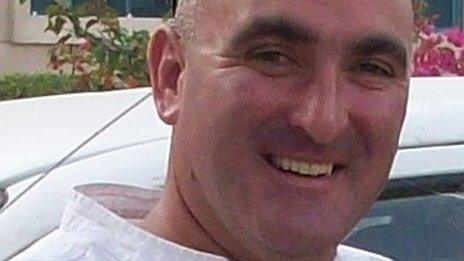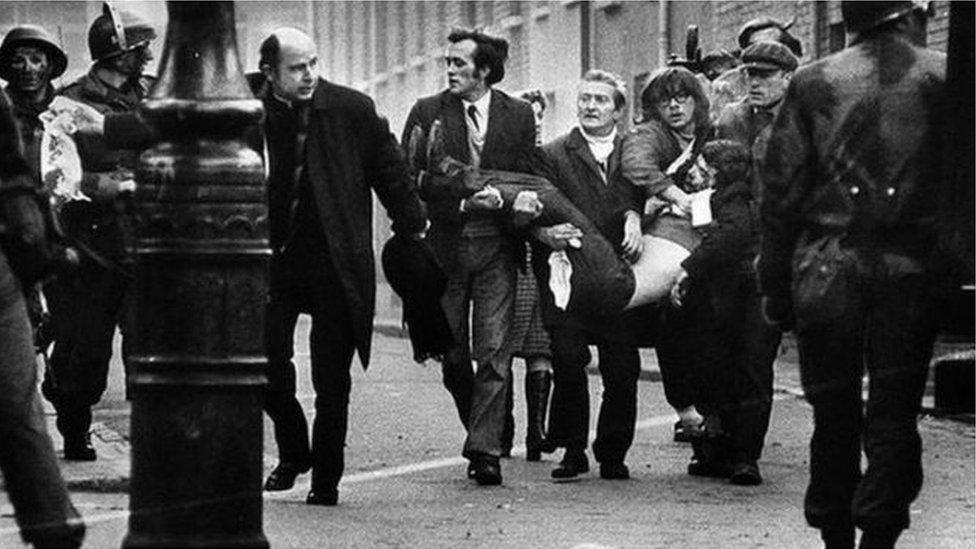Aldershot IRA Bombing: 50th anniversary memorial unveiled
- Published
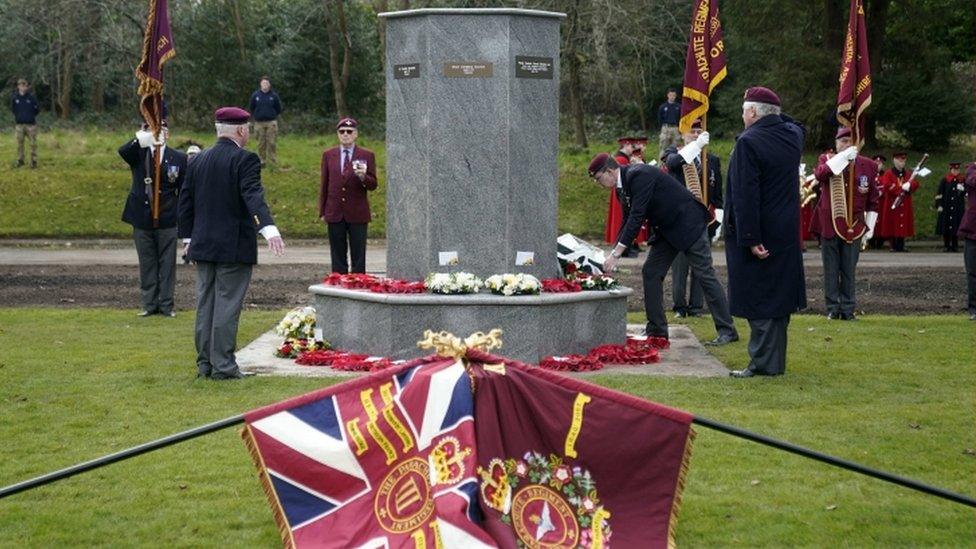
Wreaths are laid at the unveiled memorial plinth in Aldershot
Wreaths have been laid at the unveiling of a memorial to the victims of an IRA bombing in Hampshire 50 years ago.
Seven people were killed when a car bomb exploded outside the headquarters of the 16th Parachute Brigade in Aldershot in the afternoon of 22 February 1972.
Nineteen people were also injured in the attack on the officers' mess.
On Tuesday, a service to bless the newly unveiled memorial plinth was held at the same hour as the explosion.
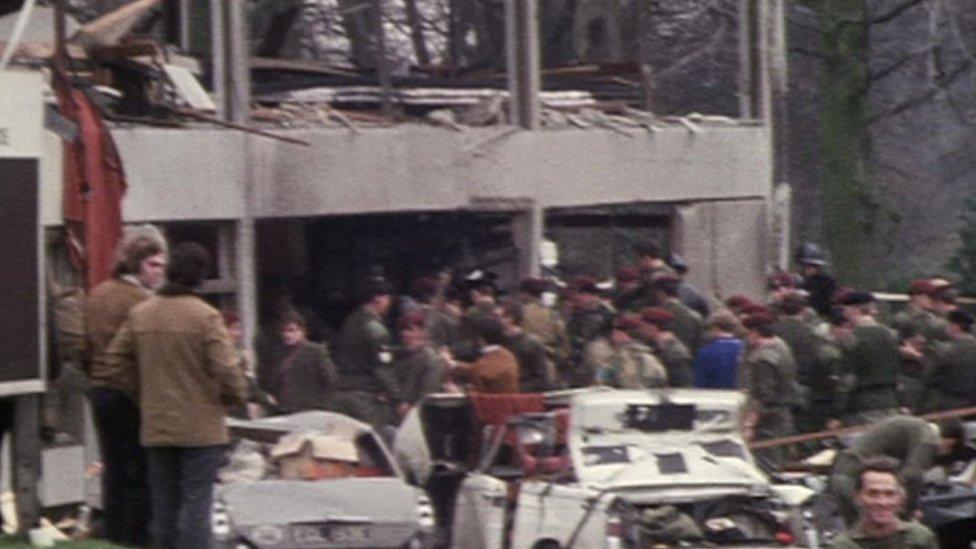
The attack was carried out as a reprisal for Bloody Sunday
Each side of the heptagonal plinth represents one of the victims killed: Catholic army chaplain Gerard Weston, gardener John Hasler and five women who worked in catering: Mary Thelma Bosley, Jill Mansfield, Joan Lunn, Sheri Munton and Margaret Grant.
Following the service, a parade and march was held along Aldershot's Queen's Avenue, which was closed to traffic for the first time in more than a decade for the event.
The bombing was carried out as a reprisal for Bloody Sunday, where paratroopers in Londonderry opened fire during a civil rights march, killing 13 people.
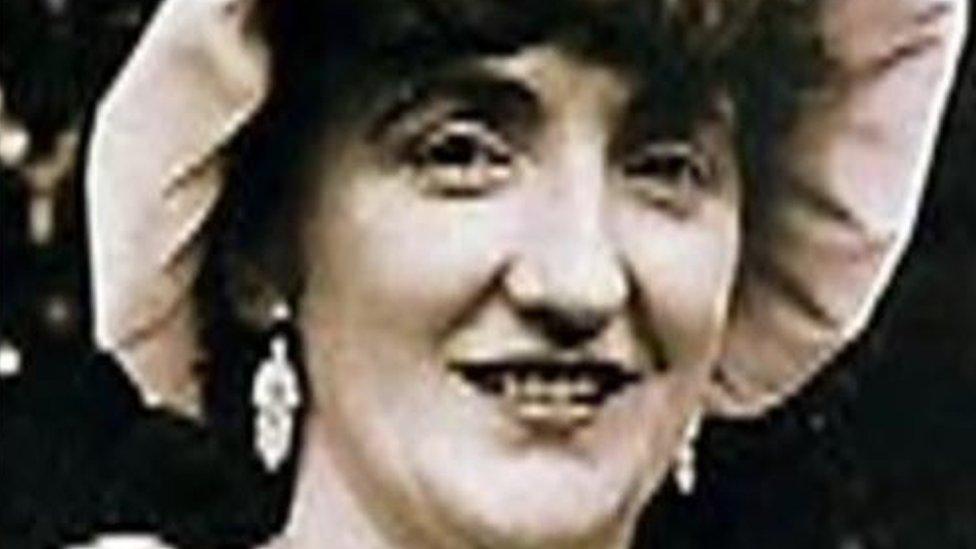
Thelma Bosley was one of five women who were working in the kitchens at the time of the blast
John Bosley, whose mother Thelma Bosley was killed in the Aldershot blast, said earlier: "It's closure - but not the closure I would have liked."
He has been campaigning for a memorial in the town for a decade but he and his family remain angry that there has never been a full public investigation into the bombing.
Mr Bosley told the BBC it is "inexplicable" that security had not been stepped up in Aldershot after the regiment's involvement in the shootings three weeks earlier.
He said he blames the lack of an inquiry for his brother Carl's death last year, after he had campaigned for decades for a full investigation.
"He [Carl] disappeared into a downward spiral over 20-something years of alcoholism and he was found dead last May in his house," he said.
Aldershot IRA Bombing: 'It's not the closure I would have liked'
An ex-serviceman, Mr Bosley said he owes his own life to the charity Rock2Recovery, external, which helps veterans affected by stress.
And he believes people involved in tragedies today receive much better care because "fortunately as a society we've moved on".
Welcoming the memorial unveiling, he continued: "It's closure - but not the closure I would have liked.
"I would have liked to have seen people getting the help they should have had, I would have liked this event given the recognition it should have had, but we don't get everything we want in life."
The bombing in Aldershot was the first in a series of attacks by the IRA targeting British Army regiments serving in Northern Ireland at the time of the Bloody Sunday shootings, which happened just over three weeks earlier.
On Sunday 30 January 1972, 13 people were shot dead, and at least 15 others were injured, when members of the Parachute regiment opened fire on civil rights demonstrators in the Bogside - a predominantly Catholic part of Derry.
The day became known as Bloody Sunday and is widely regarded as one of the darkest days of the Northern Ireland Troubles.

Follow BBC South on Facebook, external, Twitter, external, or Instagram, external. Send your story ideas to south.newsonline@bbc.co.uk, external.
- Published22 February 2012
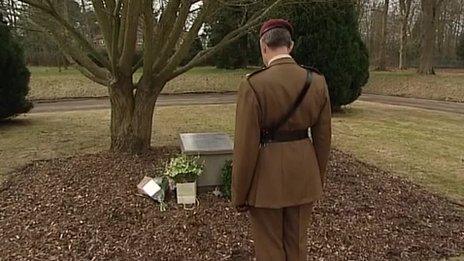
- Published24 January 2012
